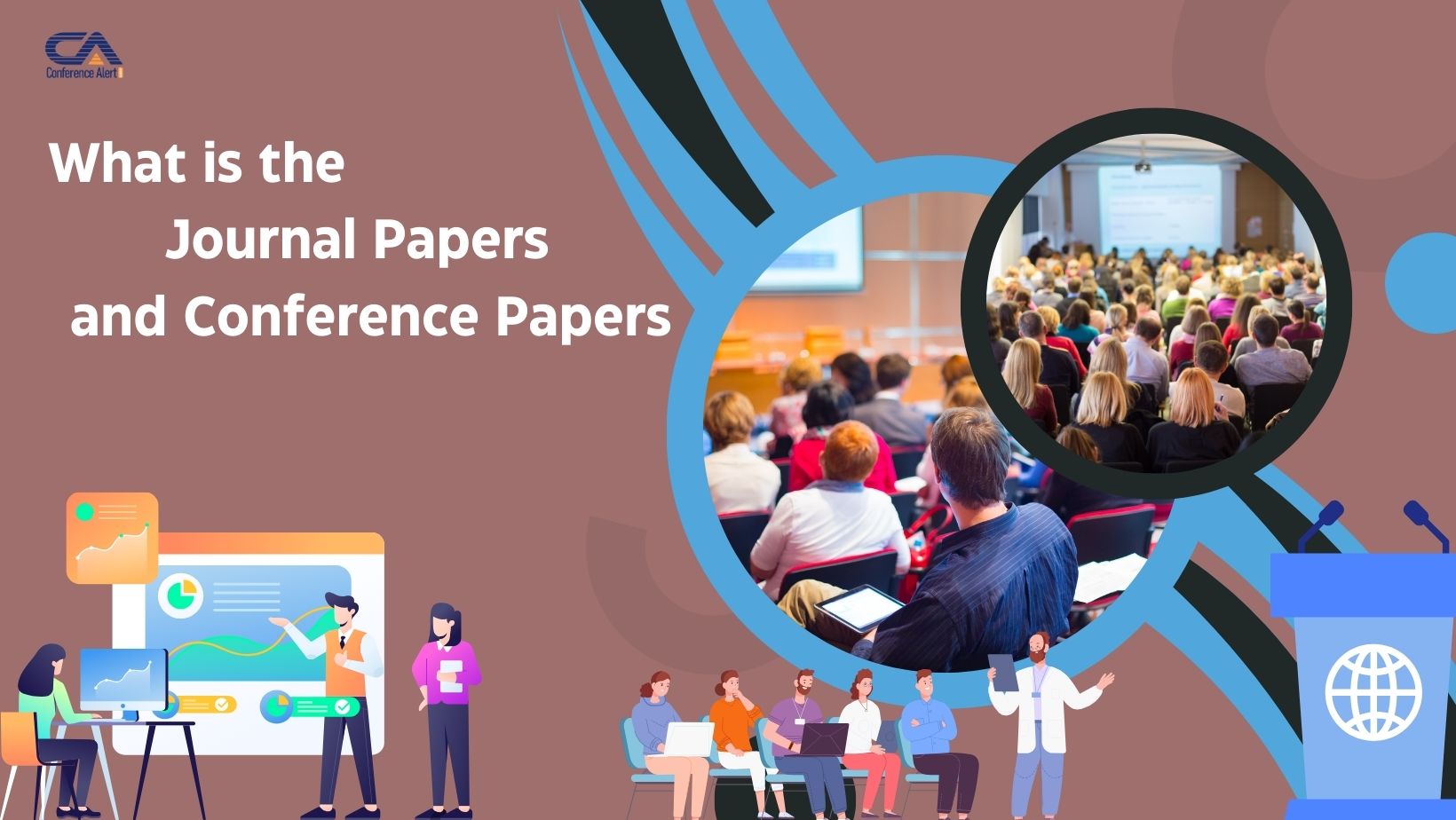Academic publishing, researchers often encounter two primary types of publications: journal papers and conference papers. While both serve as platforms for disseminating research findings, they differ significantly in terms of purpose, review process, audience, and impact. Differences is crucial for researchers aiming to choose the right venue for their work. Journal papers and conferences papers, helping you navigate the academic publishing landscape more effectively.
Research journal papers and conference papers is essential for researchers, students, and scholars aiming to share their findings effectively. Academic publications serve research, they differ in several key aspects. Research journal papers are typically more comprehensive, undergo a more rigorous and extended peer-review process, and are published over a longer time frame.
Why Attend Journal Papers and Conference Papers?
Attending presentations of journal papers and conference papers is crucial for both emerging and seasoned researchers. Events provide a research findings with the academic community, stay updated with the latest developments in a particular field, and engage with experts who can provide feedback and insights that may help refine the research.
1. Networking Opportunities
Most valuable aspects of attending conferences is the opportunity to network with other researchers, academics, and professionals in the field. Opportunities, and invitations to contribute to journals or future conferences. Networking with peers also exposes you to new research ideas, techniques, and methodologies that may influence the direction of your future work.
2. Exposure to New Ideas
Conferences are dynamic, with multiple sessions happening simultaneously. Designed to showcase the latest developments and innovations within a specific discipline. Attending conference presentations, researchers get a chance to hear about cutting-edge research that may not yet be published in journals. Journal papers, while rigorous, often take longer to publish, and conference presentations allow researchers to stay on the pulse of emerging trends and ideas in their field.
3. Constructive Feedback
Presenting research at a conference allows for immediate feedback from peers, which is essential for the improvement of the study. Invaluable in shaping the direction of the paper before it gets submitted to a journal. Since conference audiences tend to be smaller and more interactive than journal publication reviews, they offer a more personal platform for discussing ideas and addressing questions directly.
4. Visibility and Recognition
Presenting at a high-profile conference or publishing in a respected journal provides academic recognition. Both conferences and journals are respected venues that showcase academic achievements. For early-career researchers, having their work recognized by a wider audience can lead to future opportunities and boost their professional reputation.
About the Difference Between Journal Papers and Conference Papers
Journal papers and conference papers are crucial in disseminating research findings, they differ in terms of submission process, content, Scopus Journals, and impact.
1. Submission and Review Process
Submission process for both journal papers and conference papers is rigorous, but it differs in terms of time frame and complexity.
Conference Papers: Submitting a conference paper is generally faster than submitting a journal paper. Conference papers is often more informal and can be conducted in a shorter time frame, sometimes within weeks. Conferences ideal for presenting preliminary or ongoing research. Conferences is typically less detailed compared to journal reviews, but it is immediate and can be helpful for refining the paper.
Journal Papers: Journal papers go through a more detailed, thorough, and often slower peer-review process. Submitting a paper to a journal can take several months or even longer before a decision is made. Science Journal papers are expected to present fully developed, detailed, and polished research findings. Process tends to be more rigorous and can involve multiple rounds of revisions before a paper is accepted for publication.
Scope of Content
Conference Papers: Conference papers usually cover more focused, short-term research. Highlight preliminary results, current work in progress, or specific aspects of a larger study. Papers are typically shorter in length and may not include exhaustive data or comprehensive discussions. Goal is to spark discussion and present findings in a concise, accessible way for a specific audience.
Journal Papers: Journal papers tend to be more comprehensive and provide a full account of the research process, including background, methodology, data analysis, results, and conclusions. Papers are usually longer and provide in-depth discussions of the research’s significance and implications. Journal papers often undergo more rigorous editing to ensure that the information is accurate and well-presented.
Benefit of Journal Papers and Conference Papers!
Journal papers and conference papers have their own unique benefits. Depending on your research goals, one may be more appropriate than the other.
Benefits of Conference Papers!
- Faster Dissemination: Conference papers is their relatively quick dissemination. Researchers can share preliminary results or early-stage findings with the academic community within a few months. Invaluable for receiving immediate feedback and adjusting research plans accordingly.
- Increased Networking Opportunities: Conferences offer unique networking opportunities, bringing together scholars, researchers, and industry professionals. Presenting at conferences allows you to meet experts in your field, engage in discussions, and explore potential collaborations.
- Immediate Feedback: Conference attendees often engage in discussions after presentations, providing valuable real-time feedback. Paper before submitting it to a journal for publication.
- Increased Visibility: Presenting at a conference gives your research immediate visibility. It allows you to introduce your work to a targeted audience, generating interest and potentially leading to new opportunities, such as future collaborations or job offers.
Benefits of Journal Papers
- In-Depth Analysis and Rigor: Journal papers allow for a more comprehensive and thorough analysis of research. Explain your methodology, analysis, and results in detail, making them suitable for high-level, more complex research.
- Long-Term Impact: Medical Journal papers tend to have a longer-lasting academic impact. Because they are indexed in respected databases, they are more cited by other researchers, contributing to your academic reputation and helping to establish your authority in a particular field.
- Credibility: Publishing in well-respected journals can significantly boost your credibility as a researcher. Thorough peer-review process, adding an additional layer of validation to your findings.
- More Recognition: Journal articles often contribute to academic rankings and metrics that impact university performance evaluations and individual researchers’ career advancement. Published journal articles are critical for gaining recognition and funding opportunities in the academic world.
Journal papers and conference papers have distinct roles in the academic research process. Conference papers offer a fast, interactive platform for sharing preliminary research, gathering and networking with peers. Journal papers provide a more rigorous, comprehensive account of research.
Choosing submit a paper to a conference or a journal largely depends on your research goals, timeline, and the level of detail you wish to present.




